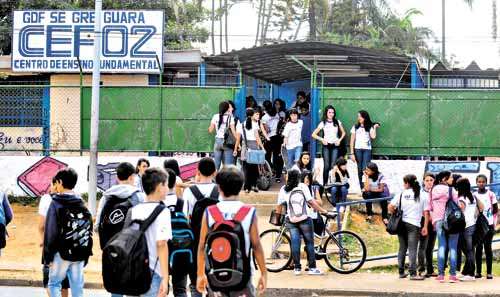When U.N. Secretary-General Ban Ki-moon and Russian President Vladimir Putin met in Sochi, Russia, they were supposed to discuss the civil war in Syria. But the Russian leader -- joined by his top diplomat, Sergei Lavrov, and defense secretary, Sergei Shoigu -- suddenly changed the subject to more mundane matters. A series of U.N. reforms aimed at streamlining billions of dollars of spending on U.N. peacekeeping was posing a threat to Russia's commercial interests. Putin and his national security team politely but firmly pressed the U.N. leader to back off, according to several senior U.N.-based sources briefed on the meeting.
The high-level intervention on U.N. spending marked only the latest example of Russia flexing its diplomatic muscle to protect its commercial position at the United Nations. For much of the past decade, Russia has been engaged in a systematic effort to stymie attempts to root out corruption in U.N. spending. The Russians have pushed out U.N. reformers. They've defanged watchdogs. And they've blocked internal budget reforms aimed at saving costs.
Russia's zeal for turning back reform has been felt most powerfully in the U.N.'s leasing of aircraft -- a $1 billion a year market -- that provide transport for the world's second-largest expeditionary force. An examination of U.N. procurement practices in the air-transport sector -- drawing on dozens of interviews with U.N.-based officials and diplomats, as well as a review of internal U.N. communications and audits -- suggests that Russia has enjoyed unfair advantages, including contracts that all but demand that the United Nations lease Russia's Soviet-era aircraft.
The dispute provides a textbook example of the difficulties of implementing basic financial reforms at the United Nations when major powers have conflicting commercial interests in the outcome. As such, the secretary general and key countries have been unwilling to openly confront Russia because its cooperation is required on a wide range of critical issues at the United Nations.
Since the end of the Cold War, Russian entrepreneurs have turned the Soviet-era air fleet into a thriving business, supplying the U.N. and other international agencies with low-cost surplus aircraft, including Antonov transport planes and Mi-8 and Mi-26 helicopters. The low-cost aircraft -- which Russian factories continue to produce -- have largely dissuaded Western air operators from competing for U.N. contracts, which must go to the lowest bidder. Russian companies now account for about 75 percent of all contracts for commercial helicopters, the most lucrative segment of U.N. peacekeeping's multibillion-dollar marketplace.
But the near Russian monopoly is facing challenges from neighbors such as Ukraine, which produces similar helicopters. The United States and European powers like Germany, France, Italy, and Spain are also looking for new business opportunities as the NATO mission in Afghanistan winds down. Those countries have privately raised concern with the U.N. about the integrity of its procurement process. They claim that the U.N.'s purchasing system is rigged to favor Russian aircraft; its bidding specifications -- for instance, req
uirements of seating capacity for more than 20 passengers -- are tailored to exclude most competitors. "Procurement is done in a way which directly specifies a Russian helicopter," said one senior European diplomat. "We have asked for more transparency; we want to change to a new [bidding] system as soon as possible."
Requests for helicopters and transport planes originate from the U.N.'s 15 peacekeeping missions and are routed through headquarters' air-transport section before being sent on to the U.N. procurement department, which invites companies to bid. Western diplomats have expressed concern that many of the key players -- including a Ukrainian procurement chief and a Russian aviation specialist -- come from countries with a major stake in the aircraft market.
But a spokesman for the U.N. peacekeeping department, Kieran Dwyer, dismissed those concerns. "The secretariat has a system of management checks and balances that mean that no one individual can unilaterally set the procurement specifications for aviation requirements," he said. "It is true that helicopters from the Mi-8 family of aircraft do play a leading role in peacekeeping aviation assets and operations. These helicopters have key features which make them suitable to peacekeeping needs, including their flying range and payload capacities and the fact that they are economical."
Despite Dwyer's claim, the U.N.'s internal corruption watchdog, the Office of Internal Oversight Services, said that the failure to open up the bidding to a broader range of aircraft has exposed the U.N. to a "high risk of acquiring air charter services at a higher cost than necessary," according to a confidential internal audit.
The U.N. audit, which was obtained by Foreign Policy, bears out some of the concerns voiced by Western powers and flags the risks of possible collusion among helicopter providers. The December 2012 audit notes that the U.N.'s largest helicopter vendor has competed for contracts against wholly owned subsidiaries, a practice that "further emphasizes the urgent need for measures to mitigate the risk of collusion. "
The audit also expresses concern that U.N. aviation officials were drawing up bids "in a manner that can often be associated with certain aircraft types and models." The practice, according to U.N. officials and diplomats, effectively eliminates potential competitors who might be able to fulfill the terms of the contract with different types of planes and helicopters.
The audit does not mention which aircraft get preferential treatment. Nor does it name the favored vendors or identify their nationalities. But it does raise concern about the fairness of the U.N. bidding process, which, for instance, fails to measure fuel efficiency in determining a helicopter's cost. It's a lapse that favors older, cheaper, but less fuel efficient helicopters. That, according to diplomats, gives Russian operators, with their aging fleets, an unfair advantage.
Several years ago, the U.N. launched an effort to enact a series of procurement reforms. One idea was to replace the practice of issuing vendors "invitations to bid" -- which sometimes specify the particular aircraft being sought -- with "requests for proposals," which define the U.N.'s general needs and allow helicopter operators the freedom to propose their own solutions using a wider variety of aircraft. "There are many cases where different types of flying equipment can perform the required tasks," according to a confidential review of U.N. bidding practices by the International Civil Aviation Organization. "A tender process requesting offers only for a specific type of equipment does not allow maximization of choice in the selection process."
Russia has vigorously opposed the United Nations' plans to change its bidding procedures, one of a series of steps the country has taken to block changes in U.N. procurement. In 2012, Russia sought to force out an aviation specialist who had been transferred to New York to try to strengthen oversight of the United Nations' helicopter leasing practices. Russia seized on an internal audit that criticized the official's management of air operations in Africa. (The official's alleged misdeed? Hiring a local aircraft for a mission in sub-Saharan Africa instead of leasing it through headquarters. According to a Western diplomat, the move not only saved money -- it filled an urgent requirement.)
For several years, the Russian government has also dragged out negotiations in the U.N. budget committee aimed at implementing the U.N. chief's procurement reforms, according to senior Western diplomats. Russia's U.N. envoy, Vitaly Churkin, said his government has no objections to reforming the U.N.'s buying practices, but he sees a raft of reforms as a direct threat to Russia's commercial interests at the United Nations. "Generally speaking, we are a little bit concerned about the number of reforms," Churkin said in an interview with FP. "We don't mind the competition. We understand that business is about competition. We don't want monkey business."
In May, Secretary-General Ban traveled to Sochi, Russia, to meet with President Putin and his top diplomat, Lavrov, to forge a diplomatic strategy for ending the war in Syria.
But the conversation quickly segued into a discussion of Russian misgivings over procurement matters. The Russian leadership was especially alarmed by a plan to delegate authority for leasing helicopters to U.N. field missions and logistical hubs in Entebbe, Uganda, and Brindisi, Italy, a move that would limit the ability of Moscow's powerful U.N. headquarters delegation to monitor and influence decisions.
The Russians also objected to the plan to upgrade the bidding process. They pushed back on a plan to promote "staff mobility," a key element of Ban's reform effort. The initiative is aimed at offering U.N. officials a greater range of experiences and skills by having them periodically serve in the U.N.'s far-flung missions. Several diplomats said that the Russians are concerned that the move would dilute Russia's influence in New York and potentially force a Russian national who is involved with drawing up helicopter specifications to rotate out of his job.
Churkin said that Russia is worried that the U.N. reforms pose a direct threat to its legitimate commercial interests and that the initiative to decentralize helicopter operations may undercut fair competition.
Russia has previously been the focus of concern about irregularities in U.N. procurement. In 2006, the U.N. established a Procurement Task Force to look into allegations of corruption within the United Nations after Alexander Yakovlev, a U.N. purchasing officer from Russia, pleaded guilty to U.S. federal charges that he received hundreds of thousands of dollars in bribes from companies doing business with the world body. The case led to the conviction on similar charges of Russian diplomat Vladimir Kuznetsov, who led the chief U.N. budget committee.
Although the task force -- which was headed by former Connecticut prosecutor Robert Appleton -- played no role in prosecuting Yakovlev or Kuznetsov, it has conducted several investigations into their roles in the scheme, earning the ire of Russia and other U.N. member governments. In 2008, Russia proposed a resolution that would have forced Appleton and his team out of the United Nations. Although the measure failed to pass, Appleton was ultimately forced out of the United Nations by Ban, blocked his appointment as the U.N.'s chief of internal investigations on a technicality: No female candidates were included on a shortlist of candidates. The U.N.'s then top anti-corruption official, Inga-Britt Ahlenius, who had tried to hire Appleton, resigned over the matter and accused Ban of undercutting her independence.
In the following years, the U.N.'s capacity to police itself has suffered, and the internal financial controls have not performed up to expectations, particularly in aviation. "The secretariat's governance, risk management and control process examined were unsatisfactory in providing reasonable assurance regarding the efficient, cost effective and timely acquisition and management of air charter services agreements," according to one U.N. audit. Russia has resisted efforts to modernize the U.N.'s air fleets with greener technologies, upgraded safety systems, and more fuel efficiency.
The issue came to a head after a Russian Mi-8 slammed into a mountainside in the Democratic Republic of the Congo. Following the crash, a U.N. aviation official at the U.N.'s headquarters sent an email requiring that U.N. helicopters be upgraded with a safety device -- known as an enhanced ground proximity warning system -- that relies on a digital terrain mapping system to detect large physical objects, including buildings and mountains, in bad weather. But a senior U.N. official subsequently overruled that decision, saying that the U.N. safety review had not yet determined whether the system would be mandatory or not.
The question circulating among the U.N. diplomatic community is whether the U.N. backed down under Russian pressure. Russian carriers have not installed the devices in their helicopters, and the leading Russian operator, UTair, was competing for a multimillion-dollar contract for three helicopters for the Democratic Republic of the Congo. A chief competitor, Ukraine, has been equipping its helicopters with the safety systems. In the end, UTair came in as the lowest bidder, making it highly likely that it will formally win the contract.
A spokeswoman for UTair, Elena Galanova, wrote FP by email to say that the Russian Mi-8 and Mi-26 helicopters it provides to U.N. missions are equipped to faithfully comply with any of the U.N.'s requirements. But she said that UTair would be prepared to install the new warning system if the U.N. demanded it, but she noted that the warning system "is in fact not a mandatory requirement."
Russia's U.N. envoy, Churkin, said that Moscow is also committed to embracing modern technologies and safety features, but not if progress is a cover for seeking an unfair edge in the marketplace.
"We think we can continue to be very competitive if things are done fairly, but if there is going to be an effort to avoid fair competition," he added, "that's going to cause a problem for us and for the image of the United Nations."






